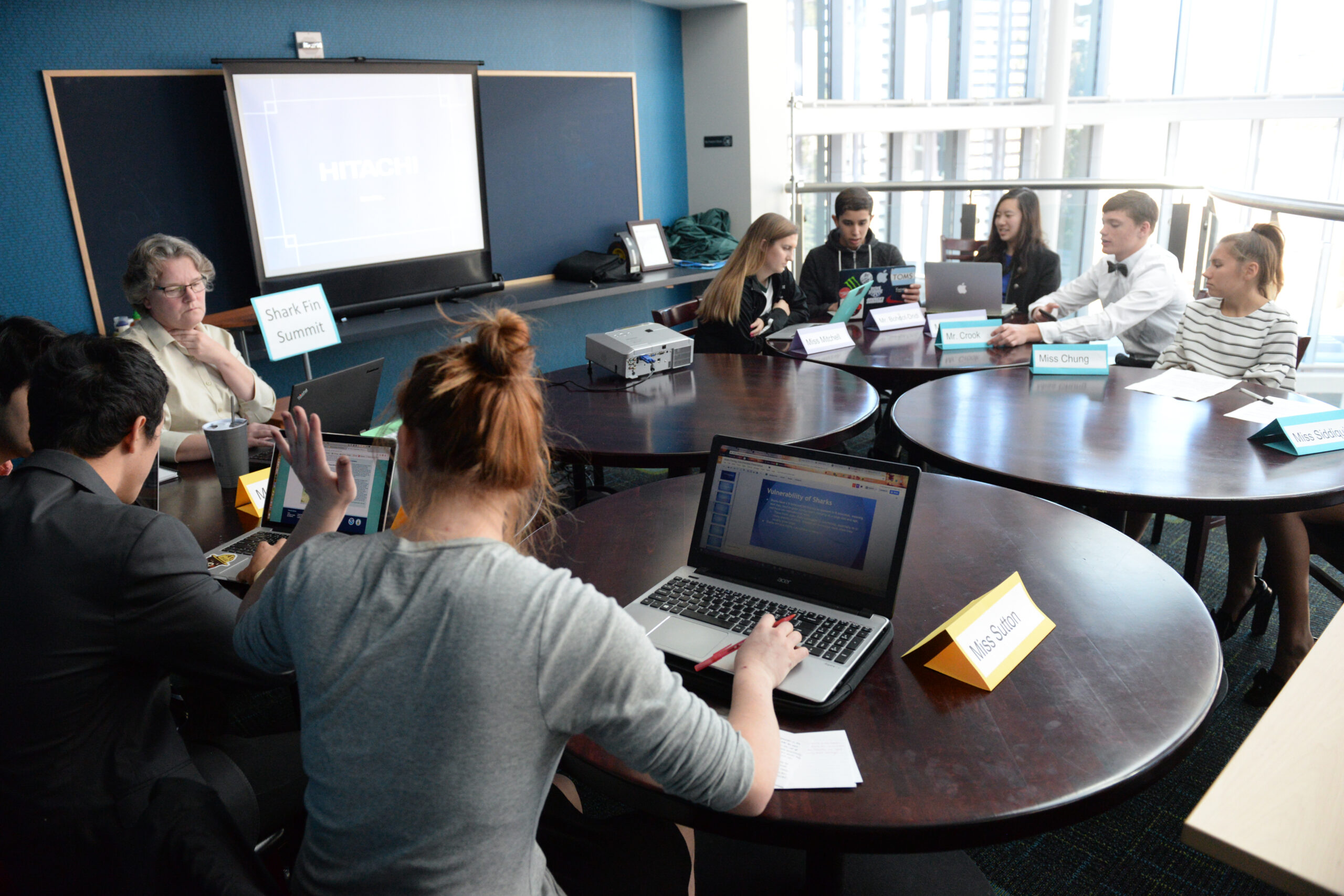Last month, Kate Schafer’s marine biology students took part in the Shark Fin Summits, in-class events that had students deliberate and come to a consensus on a recent piece of legislation regarding the sale of shark fins. A separate summit was held for each period of the class.
Schafer was inspired to hold the summits after seeing library director Sue Smith’s presentation on infographics at a teacher orientation meeting early in the school year. It also presented an opportunity for Schafer to bring multiple disciplines into her classroom. “I have been interested in finding ways to give students an exposure to interdisciplinary learning, and this was a fantastic opportunity for that,” she said. “Many students in our debrief expressed how much they appreciated having what felt like a real world experience, and said it got them thinking about possible careers that would cross different fields.”
Students represented each of the interest groups with a stake in the legislation – environmentalists, the fishing and restaurant industries, animal rights activists, cultural organizations and the ecotourism industry. Each representative gave presentations that were created following weeks of exhaustive research. In the end, the groups agreed “that an organization of stakeholders would regulate the capture and sale of shark fins,” said upper school librarian Lauri Vaughan, who developed the summit with Schafer.
Learning, innovation and design director Dan Hudkins moderated the first summit, while history teacher Damon Halback moderated the second. Each had different approaches to facilitating discussion, “but both were amazing and highly successful in terms of creating amazing learning experiences for the kids,” Vaughan said. “Both were able to weave in the basics of civics and legislative process while guiding a very complicated discussion.”
Schafer said the students learned many valuable lessons about the process of discussing and making decisions on legislation. “I think that the students were all struck by how difficult it can be for people with different stakes in an issue to come to a consensus,” she noted. “We were clear from the beginning that this wasn’t a debate and that there would be no winner.”
